Writing a condolence letter to someone who has recently lost a loved one is always tricky. It is important, however, for those who want to express their sympathy and offer their help in the most thoughtful way possible. Here are some suggestions on how to write a meaningful condolence letter that the recipient will greatly appreciate.
Table of Contents
Condolence & Sympathy Letter Templates
Condolence sympathy letter templates are pre-designed documents that provide a structured format for expressing condolences and offering sympathy to someone who has experienced a loss or bereavement. These templates offer a convenient and thoughtful way to convey heartfelt messages of support and comfort during a difficult time.
Condolence sympathy letter templates typically include sections that express sincere condolences, share memories or stories about the deceased, offer words of comfort and sympathy, and extend support to the grieving individual or family. They may also provide space for personalization, allowing the sender to add their own thoughts and sentiments.
Using a condolence sympathy letter template helps individuals express their condolences in a compassionate and meaningful way while providing guidance and structure during a sensitive period. The template ensures that the sender’s words are thoughtful, appropriate, and reflective of the depth of the loss.
What Is a Condolence Letter?

A condolence letter is a card or letter sent to those who have experienced the loss of a loved one. Its purpose is to express condolences for a death. You may be asked by someone suffering grief to write such a letter. Or you may compose one as an act of generosity by yourself.
A letter of condolence is sent to the bereaved family members on the death of a loved one. A letter of condolence can be delivered in several ways. A note may be left at the house or apartment with an apology for being unable to attend services. This ensures that a written message will be present for the family when they return home. If a card was sent to the family home, it is appropriate to call and tell them how sorry you are about their loss.
The sender is supposed to give out words of comfort, compassion, and understanding. Although people may not want these letters, they shouldn’t be offended as it only means that someone cares for them and values their feelings or discomforts after the death of a loved one. A good letter will help not just to let another person know that you care but also give tips and important reminders to those who are going through painful moments in their lives.
Reasons to Write a Condolence Letter
People tend to pick up a card at the pharmacy or grocery store when they’re running errands and sign and send it without taking the time to think about what they want to say. Although a card is better than not sending anything at all, personal notes carry much more weight with the folks on the receiving end. With a personal letter, you can share stories that show how important he or she was to you or your family. The bereaved feel the grieving process is important, and know that you and your family cared enough about them to take the time to write out words of solace, memories, and thoughts about their life.
All of these reasons show that sending a memorial tribute is essential to the surviving family. The fact is. One way to help that can provide comfort and support to those left behind is by sending a memorial tribute.
Writing A Condolence Letter
There are several standard elements in every condolence letter. These include:
Acknowledge the loss: Start by expressing your sympathy for losing your friend’s loved one. You might say, “I was so sorry to hear about the passing of [name]. I know how much they meant to you and how much they meant in your life.”
Express your sympathy: Expressing sympathy is an important part of any condolence letter. You can do this by saying something like, “I was so sorry to hear about [name] ‘s death” or “I was shocked to hear about [name] ‘s death.”
Describe one of your friend’s special qualities or talents that stood out to you in particular over the years or during their lifetime before their death occurred. This could be something about their personality or character that made them unique and special, or even something they did well (such as playing golf) that impressed them.
Include a favorite memory: Think back to when you first met the deceased or became close friends with them. What was it like? What did they like to do? What made them smile? Sharing these happy memories can help bring comfort to those grieving their loss, especially if they can relate to them.
Mention the deceased’s strengths or special qualities: If there were any unique qualities about their personality or how they lived their life, be sure to mention them in your letter. For example, if they were known for their generosity or love of animals, let others know that these are just two examples of qualities that made this person so special.
Offer specific and practical things you can help with: It’s always nice when friends and family offer support during a time of mourning, but it’s even better when there are specific things they can do for others who are grieving.
End your letter with active thoughts: Write something like “I’ll always remember how much fun we had at our last get-together” or “You were always there for me when I needed someone.” If possible, make sure these thoughts are personal rather than generic — for example, “I’ll always remember how much fun we had at our last get-together” is much more meaningful than “You will be missed.”
Conclusion
The key thing to remember is to let the bereaved family know that you are grieving with them. They need this reassurance that the rest of the world hasn’t gone on as though nothing has happened. If your relationship is close and meaningful, tell them how they were special to you. If you don’t know what to say, look online at what others have written. A simple Internet search will bring up many examples of condolence letters.
FAQs
How do you write a simple condolence letter?
When writing a condolence letter, keep it brief yet heartfelt. Open by acknowledging the loss and expressing sympathy. Share a positive memory or quality of the deceased if appropriate. Close by restating your sympathy and offering support. Focus on comforting the grieving person.
What do you write in a condolence letter?
In a condolence letter, express sympathy and empathy for the grieving person’s loss. You can share a happy memory or positive quality of the deceased. Avoid cliches and refrain from saying the loss was “part of God’s plan”. Keep the focus on comforting the grieving person. Offer help or support if appropriate.
What is the best short condolence message?
A thoughtful short condolence message communicates care and support. For example, “I was sorry to hear of your loss. You and your family are in my thoughts and prayers.” Or “Please accept my deepest condolences. I’m here if you need anything during this difficult time.”
What not to say in a condolence letter?
Avoid platitudes like “time heals all wounds” or religious explanations for the loss. Don’t focus on your own experiences with grief. Refrain from offering unsolicited advice or minimized the loss with phrases like “at least they lived a long life.” Keep the focus on the grieving person.



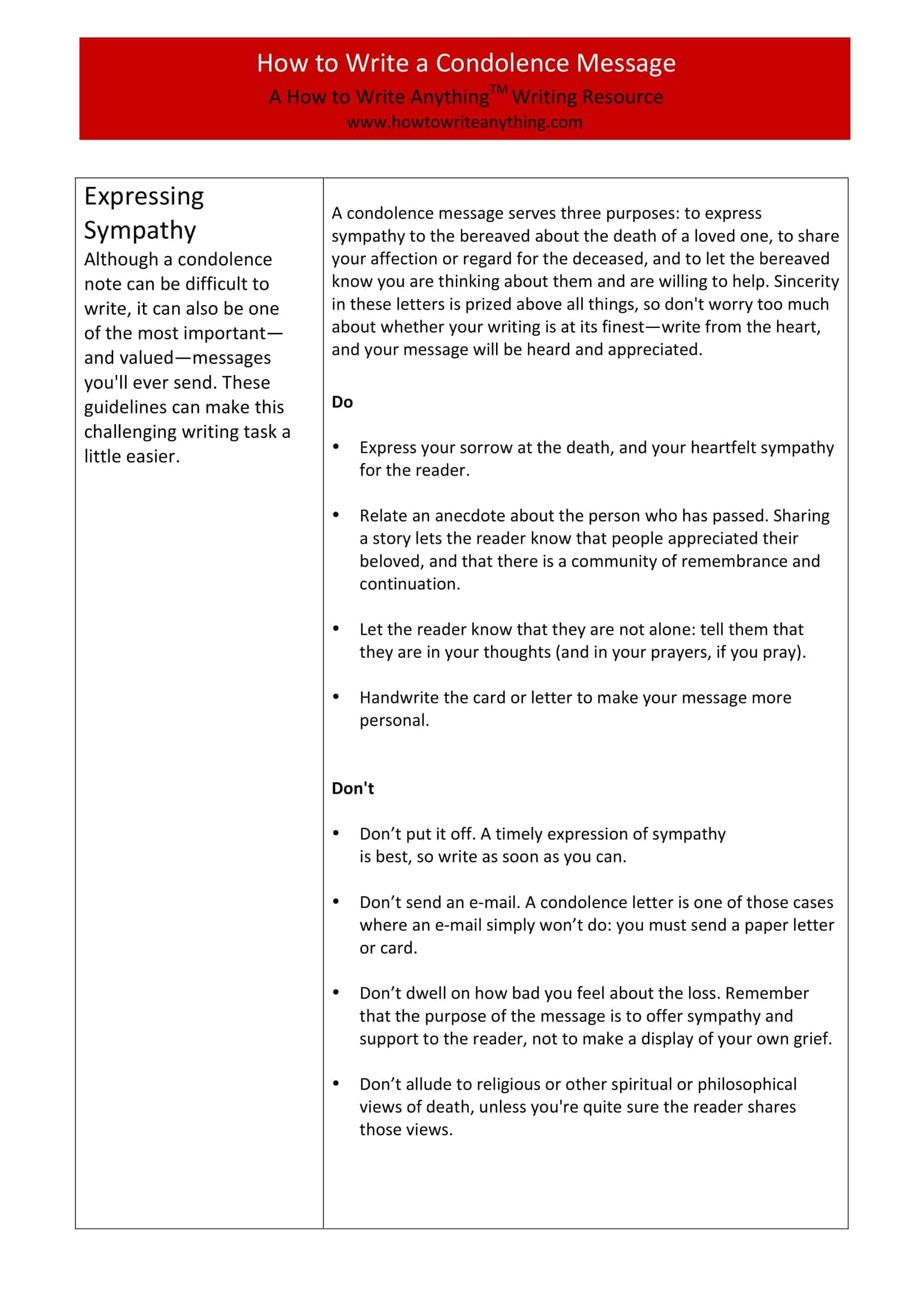



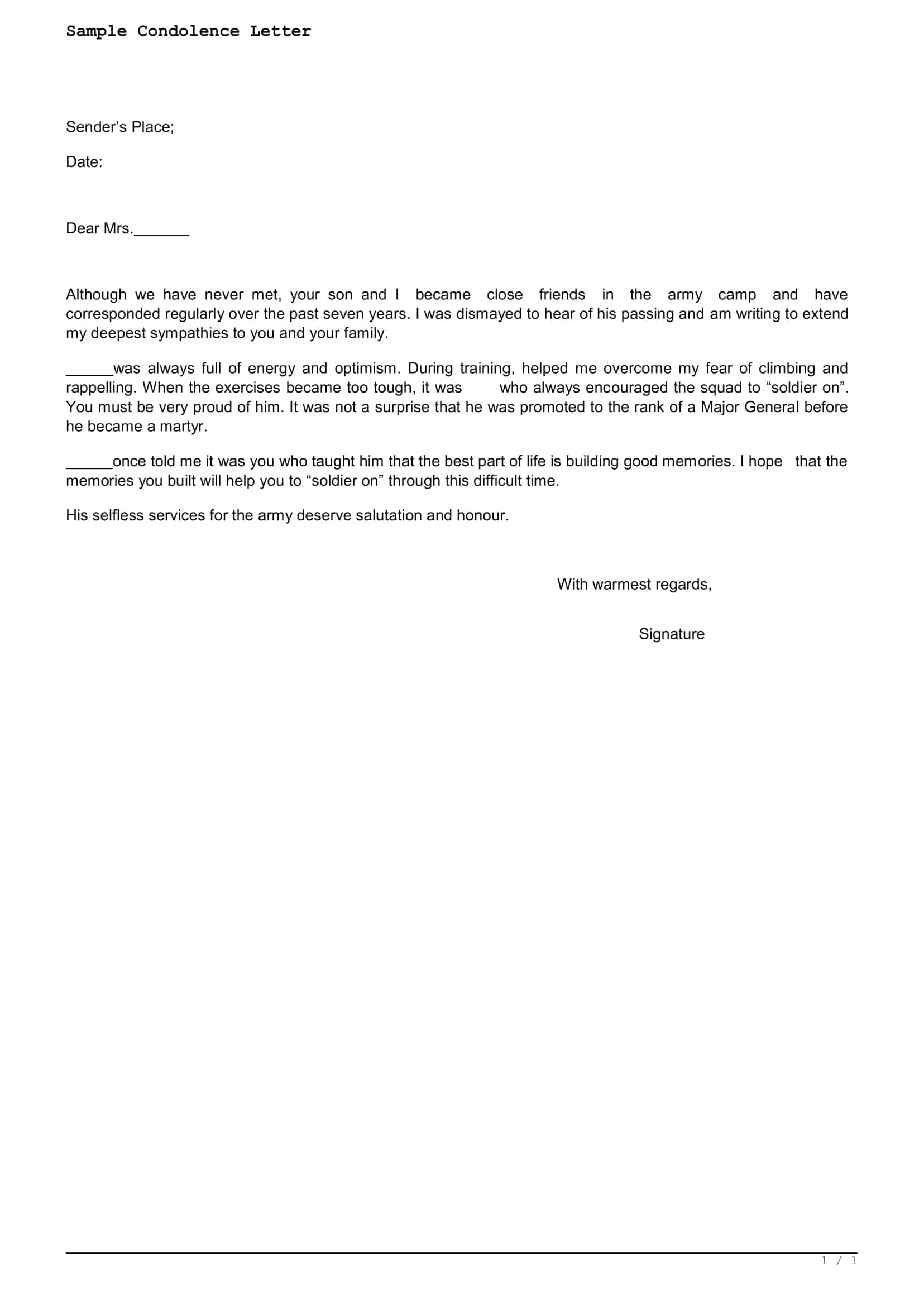







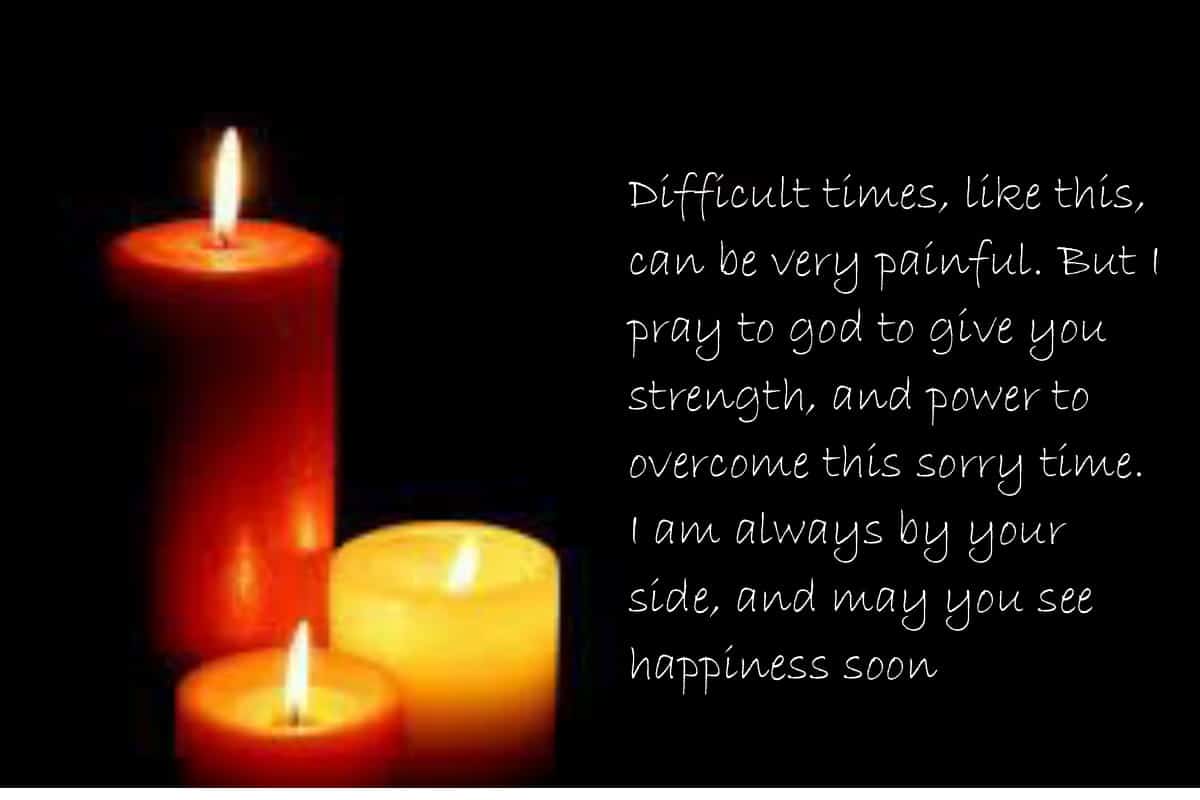



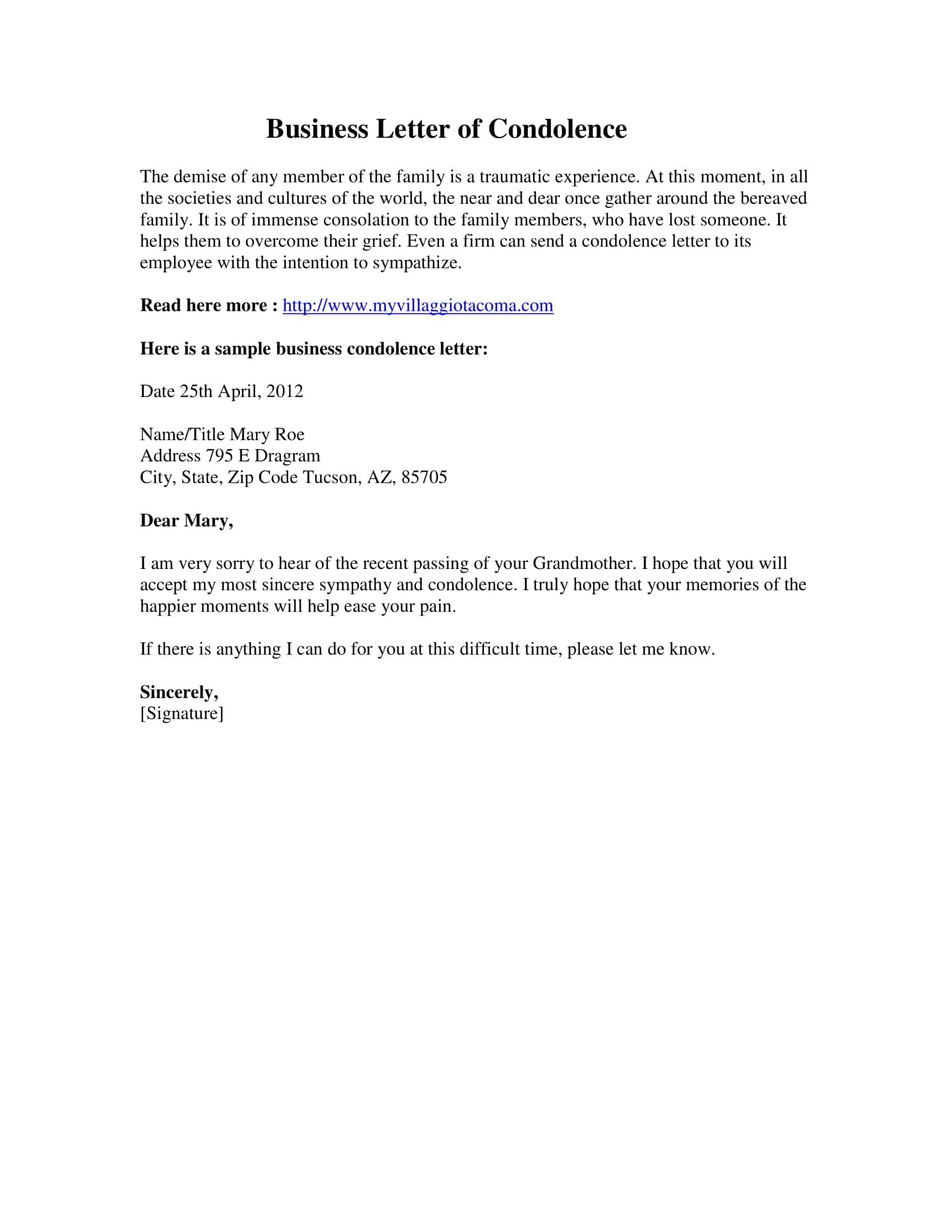


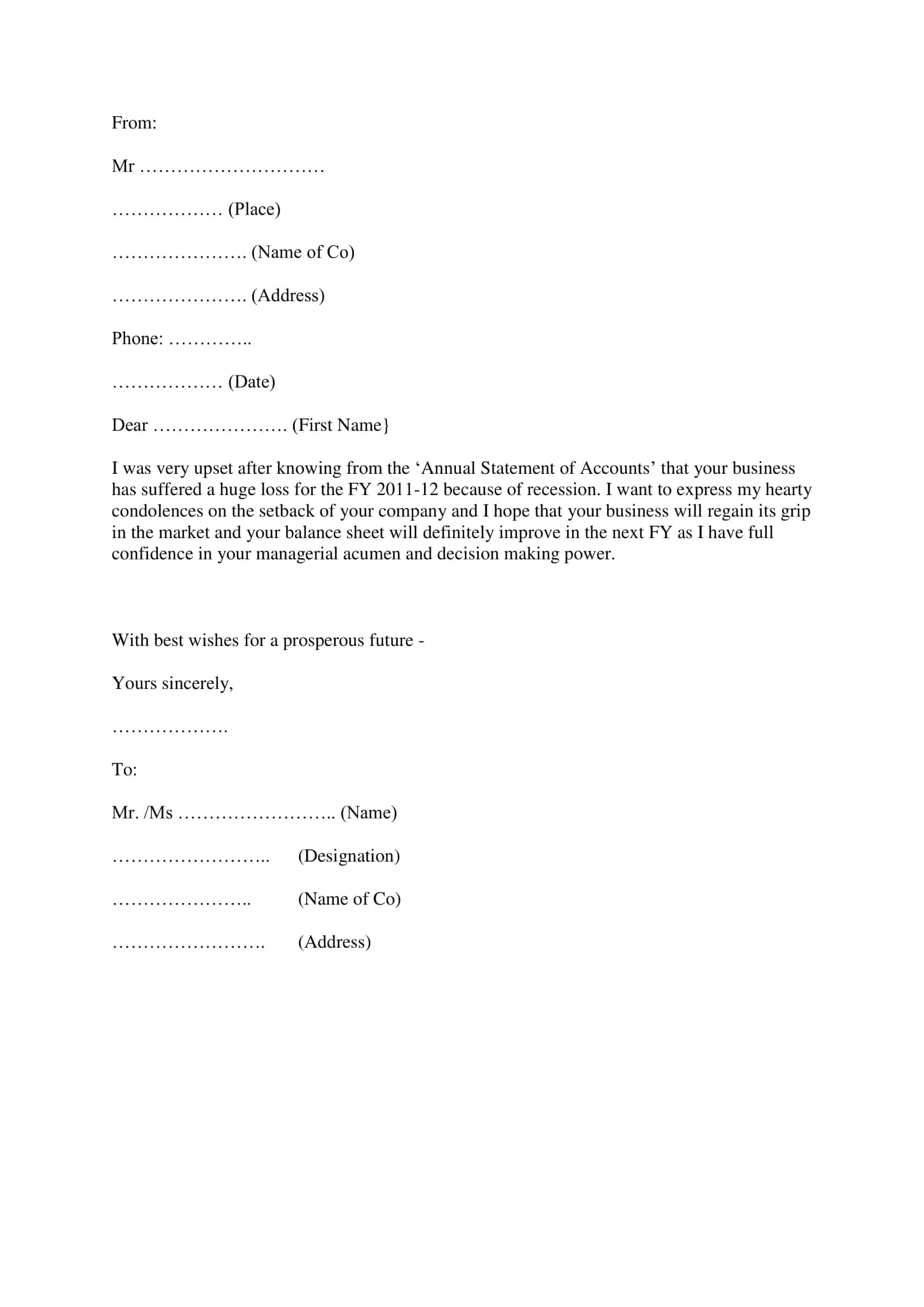










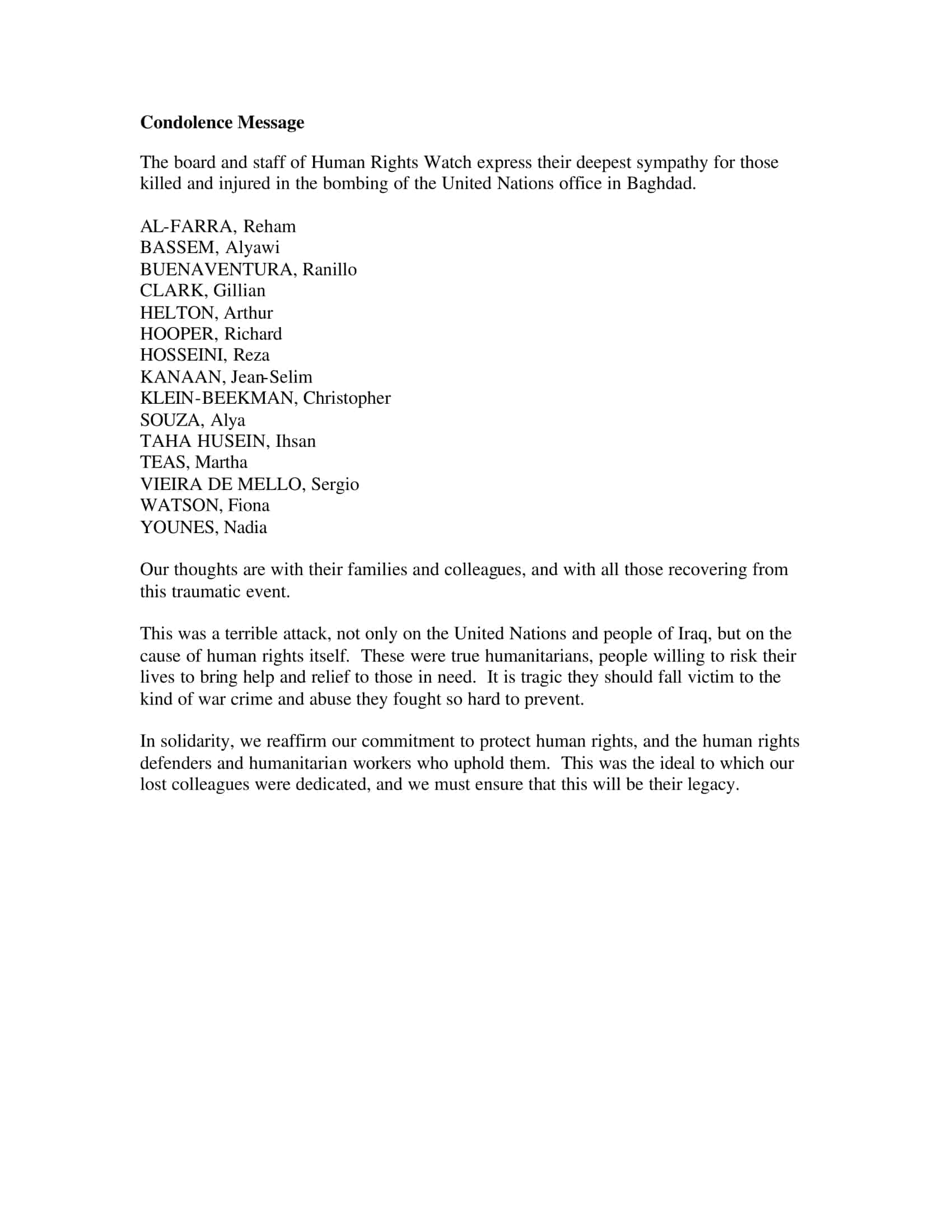

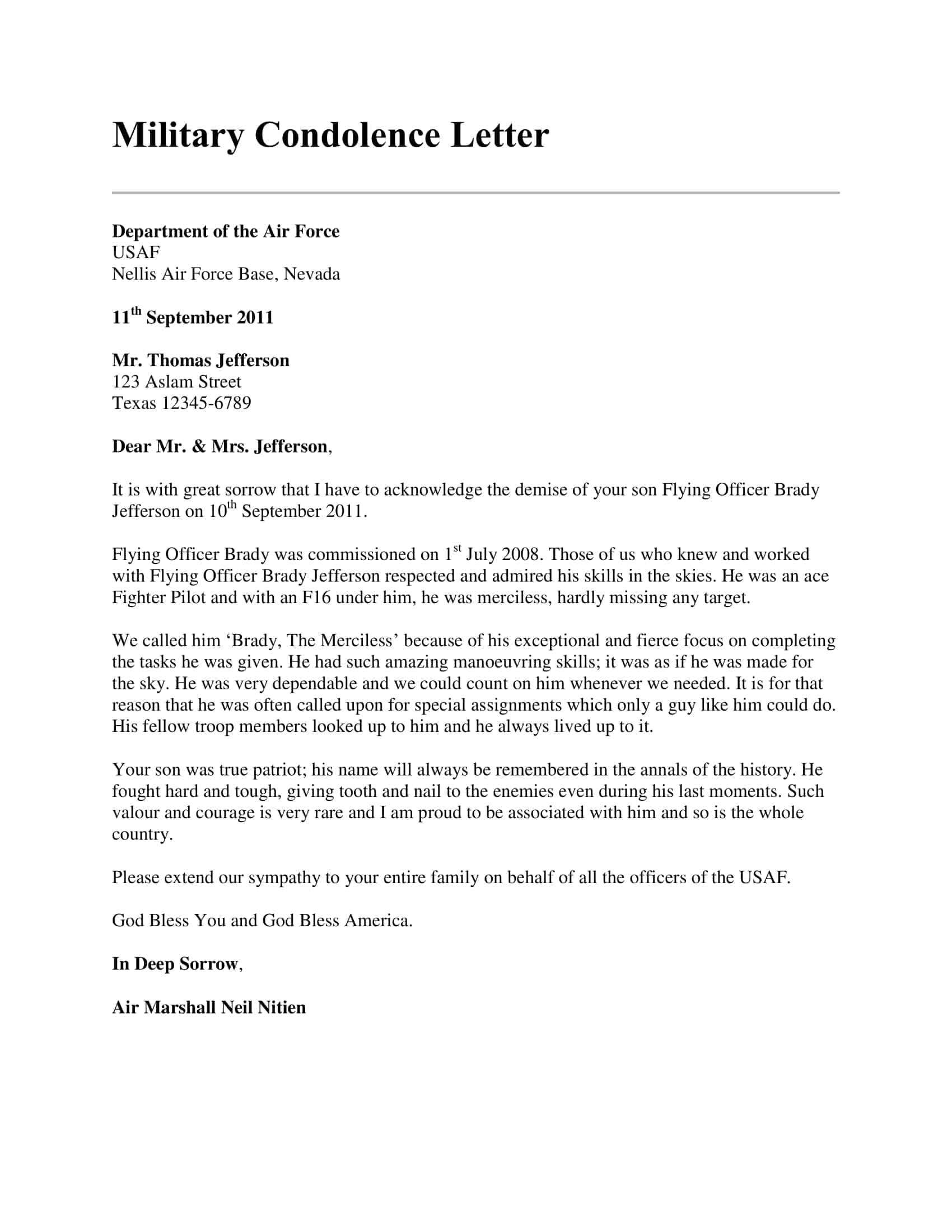

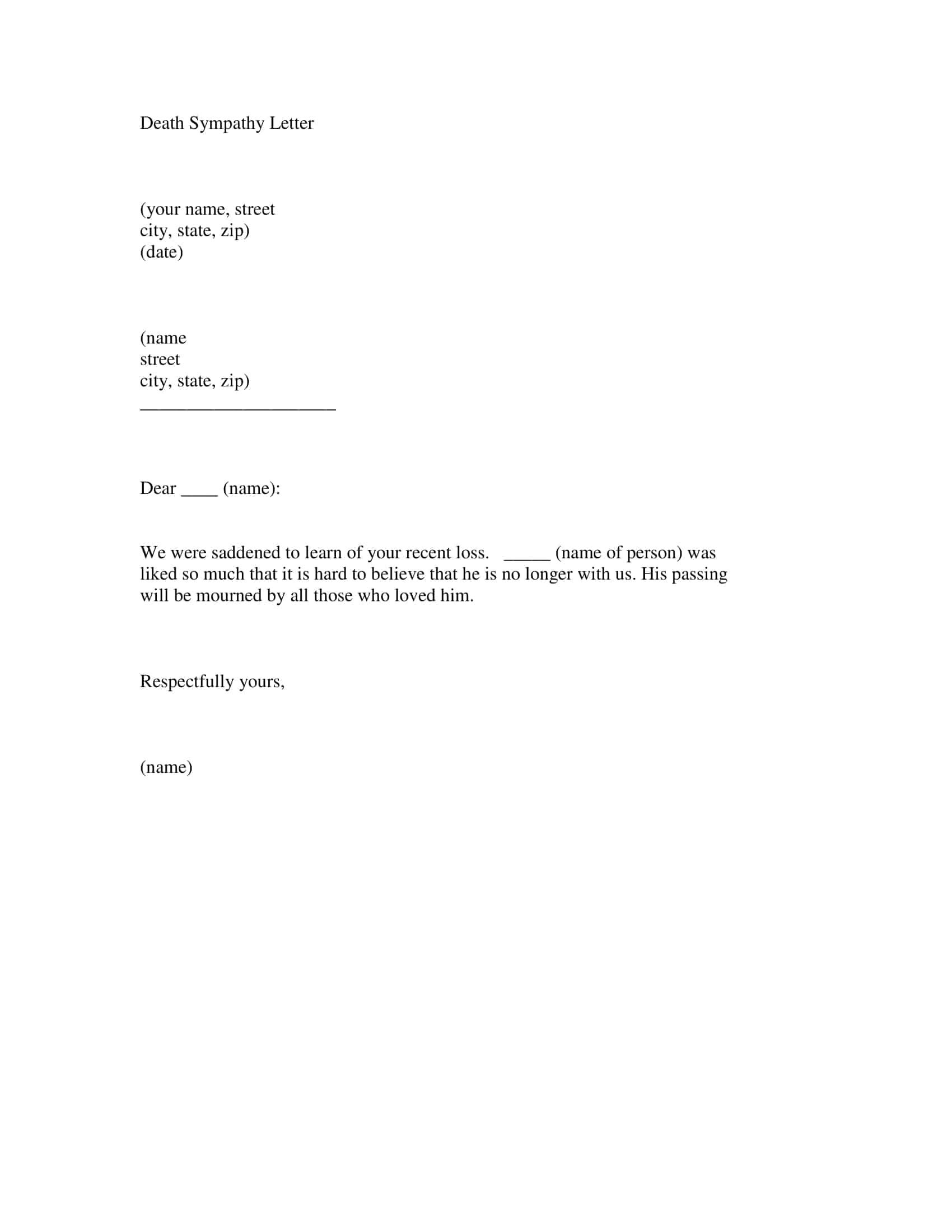





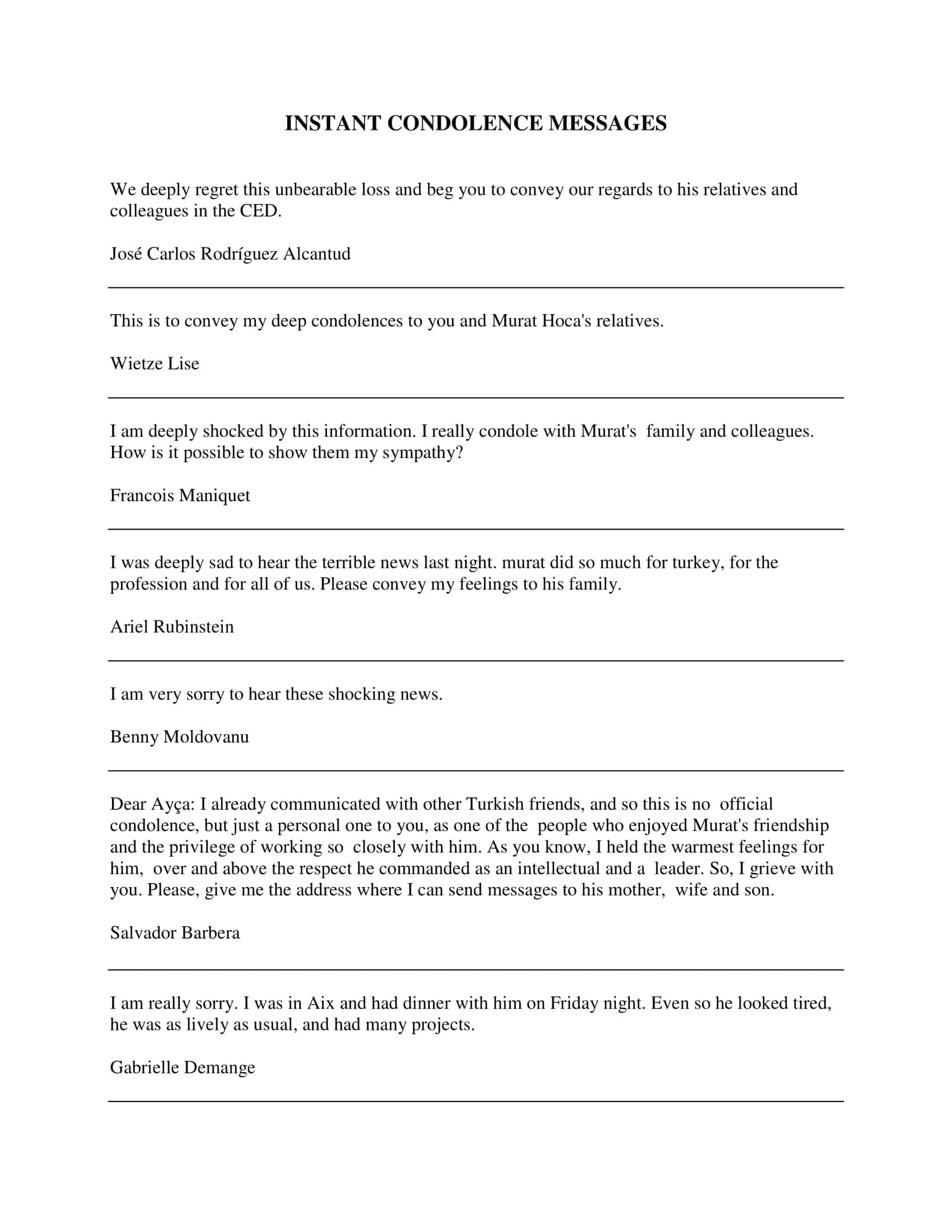


![Free Printable Friendly Letter Templates [PDF, Word, Excel] 1st, 2nd, 4th Grade 1 Friendly Letter](https://www.typecalendar.com/wp-content/uploads/2023/05/Friendly-Letter-150x150.jpg 150w, https://www.typecalendar.com/wp-content/uploads/2023/05/Friendly-Letter-1200x1200.jpg 1200w)
![%100 Free Hoodie Templates [Printable] +PDF 2 Hoodie Template](https://www.typecalendar.com/wp-content/uploads/2023/05/Hoodie-Template-1-150x150.jpg)
![43+ Printable Leave of Absence Letter (LOA) Templates [PDF, Word] / Free 3 Leave of Absence Letter](https://www.typecalendar.com/wp-content/uploads/2023/01/Leave-of-Absence-Letter-150x150.jpg 150w, https://www.typecalendar.com/wp-content/uploads/2023/01/Leave-of-Absence-Letter-1200x1200.jpg 1200w)
